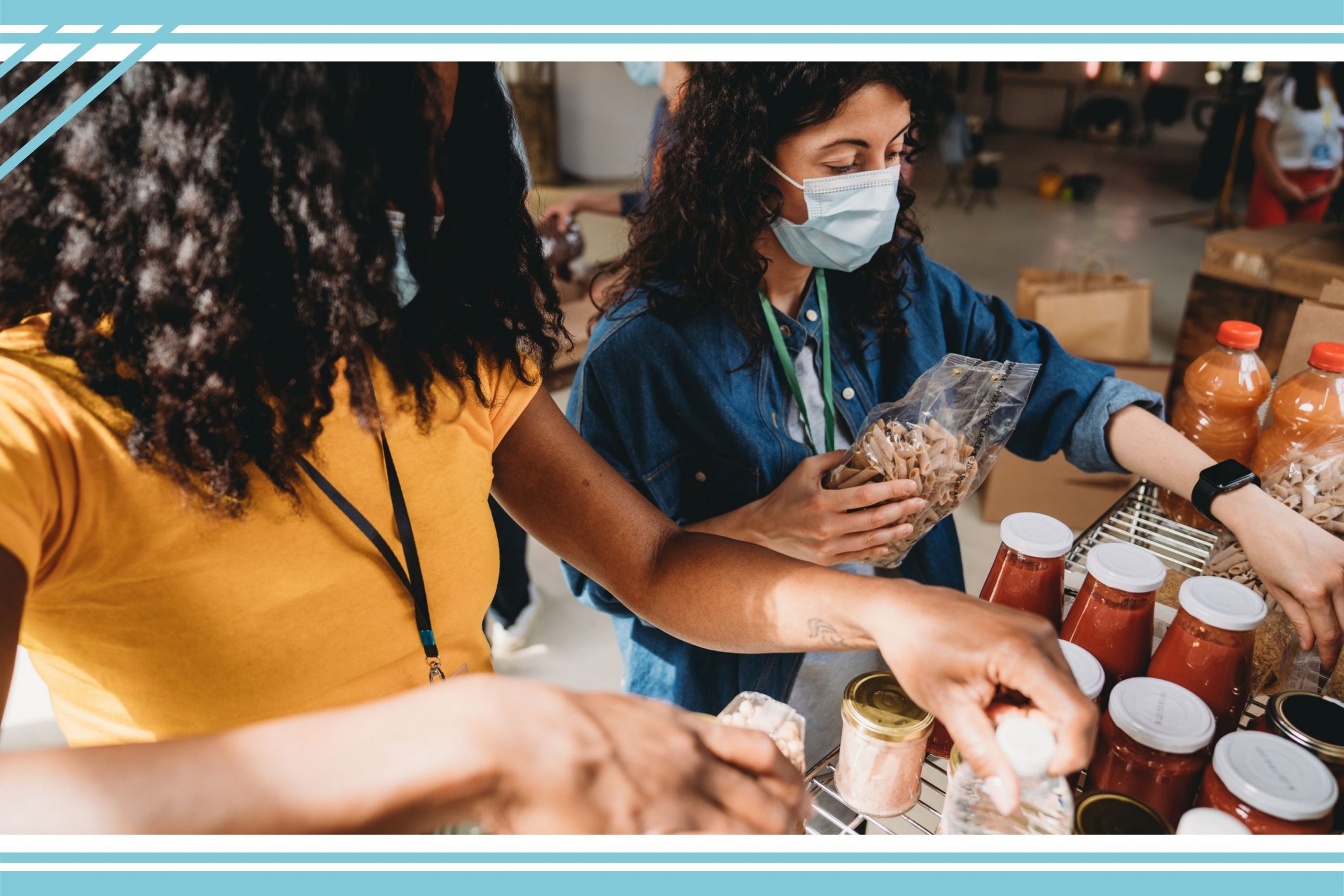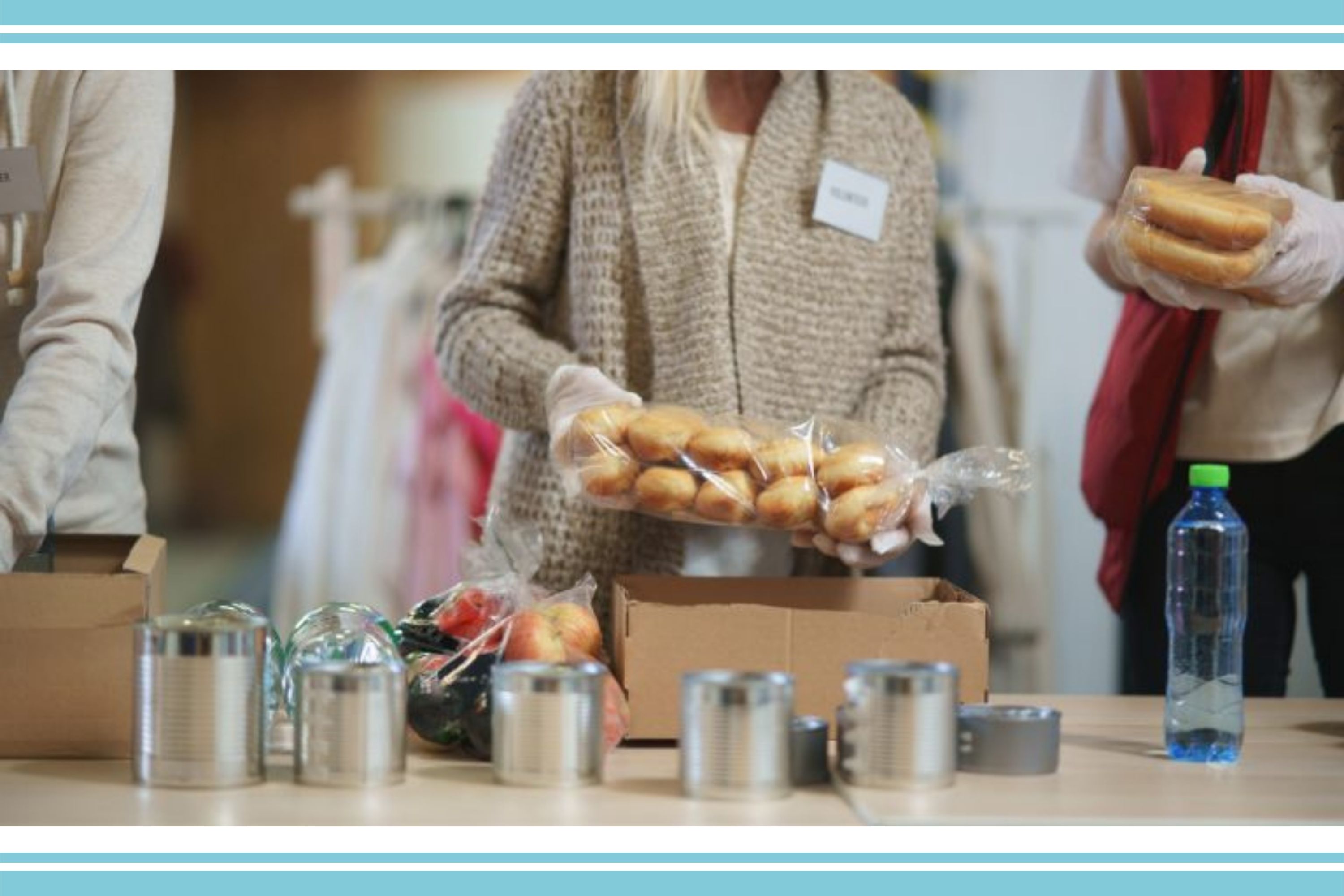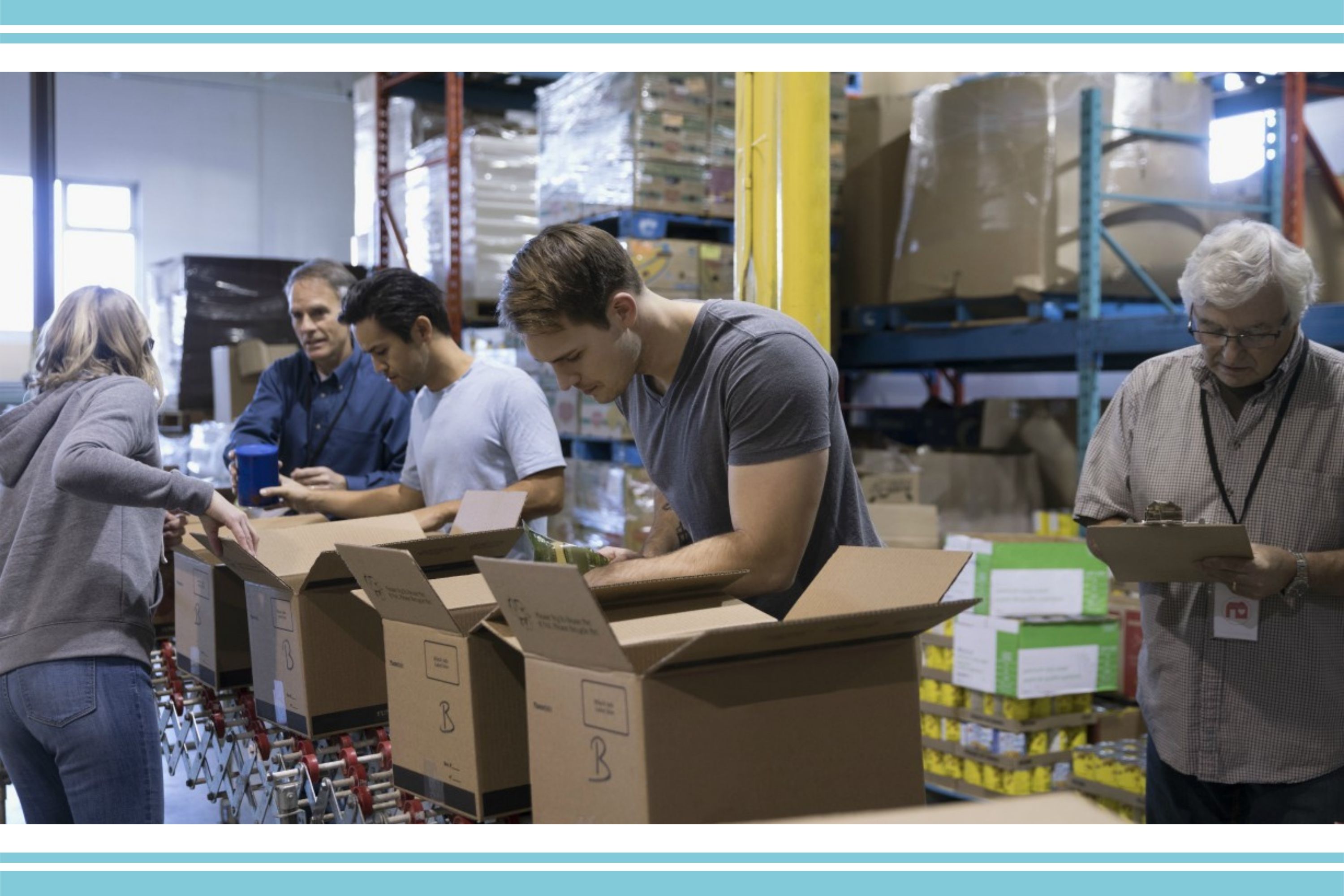Local food banks: Food banks near me and how to get a food bank referral


Local food banks offer help to approximately 14 million people in the UK. And with the current cost of living crisis and the recent increase in food and drink prices, food banks are being used more often.
According to the latest stats from The Food Foundation CPI data suggests that food and drink retail prices have risen by 5.9% in the last year up to March 2022. Why are food prices going up? we hear you ask, well according to Goodto's personal finance expert, Harriet Meyer; "increasing labour, energy, and transportation costs are behind the majority of increases."
Food banks are designed to offer emergency support to people during a crisis. As well as relieving the initial pressure by providing essential food items in the short term, food banks can give additional support so people don't need to come back to the bank again. The same goes for a baby bank, which supplies baby essentials such as nappies and toys, to those in financial hardship. But as each food bank in the UK serves different areas, each bank has different needs and requirements.
What is a food bank and how do they work?
Food banks provide free, nutritionally balanced, tinned, and dried food to those who need it. This might include people who have been hit by an unexpected financial crisis, such as redundancy, unexpected bills, or the ongoing coronavirus pandemic.
Care professionals, such as social workers, school staff, and health visitors, identify those in need of help and give them a food voucher for their local food bank. This voucher provides a food parcel of three days' worth of non-perishable food from the bank. Other problems, such as rising period poverty, mean that food banks also accept and offer donations of toiletries within the parcel.
But as well as providing these emergency items, food banks work so that people don't need to use them again. Specialised members of staff can provide additional support to help people resolve problems with their finances, such as debt, mental health issues, and a lack of access to government benefits. Some banks also offer services like childcare and educational courses.
All food banks rely on public donations, which are collected from places like supermarkets, schools, and local businesses. The Trussell Trust operates the most food banks in the UK, with 1200 food banks nationwide. Invite your children to get involved too, it's a strong segue into talking to your kids about the cost of living crisis.
Parenting advice, hot topics, best buys and family finance tips delivered straight to your inbox.
How do I find food banks near me?
Visit the Trussell Trust's website to find your nearest food bank at www.trusselltrust.org/map by entering your postcode or nearest town. If you are unable to travel to your local food bank due to transport costs, you can call them and check if they can deliver your food parcel.
There are also a number of private/independent food banks - these are run by local churches or charities. You may find them advertised in your local paper and usually, you can visit one of these without a referral. FoodCycle helps connect people within their local community to help reduce food waste and poverty. Like food banks, they are maintained and run by volunteers who usually have arrangements with local supermarkets to cook food for the homeless and poor. There are 40 locations around the UK.

FairShare is a charity that uses food that would otherwise be wasted at the manufacturing end of the chain and gives it away to the homeless and poor. Donors include Sainsbury's and Nestle. They were just one of the organisations that saw a demand for food packages following the MPs vote against free school meals for children during the half-term holidays in 2020.
How to get food from a food bank
The easiest way to get food from a food bank is to call Citizens Advice, where an adviser will be able to issue you with a voucher to get an emergency food parcel from your local food bank.
- England or Wales, call 0808 208 2138.
- Northern Ireland, call 0800 915 4604.
- Scotland, search for your local Citizens Advice centre using your postcode.
All lines are open from Monday to Friday, 9am to 5pm, but are closed on public holidays.
On the other end of the line, the trained advisor will ask you about your circumstances, income, and needs. They'll also ask if it's just you that needs the emergency parcel or if you've got other people living in your household who are also in need.
While you can be referred to a food bank for lots of different reasons, it can be difficult to get a voucher unless you're facing extreme circumstances. According to The Trussell Trust, the primary referrals to food banks in 2018-2019 were due to income not covering the cost of essentials, changes to a person's benefits, or delays in receiving their benefits.

Food bank referral form
As well as directly calling the Citizens Advice Bureau, you can also get advice and a food bank referral from:
- A doctor, including your local GP
- Jobcentre
- Social worker
You might get a food bank referral if:
- You've been made redundant or have reduced working hours
- Unexpected bills have left you with no money
- A change in your circumstances has affected your entitlement to benefit or the reduced the amount you receive
- Payment of benefits has been delayed
- You are turned down for a crisis loan
- Ill health
- Domestic abuse
- You have a low income or are in debt
The coronavirus pandemic has exacerbated these needs so dependence on food banks is currently higher than before.
Food banks without referral: can you go to one without a referral?
The Citizens Advice Bureau explains that you can visit an independent local food bank without a referral, but if there aren't any local to you, you'll need to get a referral.

How many times can you use a food bank?
You can get up to three vouchers (only one at a time) for any one crisis. This gives you a total of 9 days worth of food. These vouchers are individually exchanged for three days' worth of emergency food at your local food bank.
How to get help from a food bank
Whatever additional help you need from a food bank, whether that's support applying for benefits, housing help, or debt advice, the best way to find it is to contact the food bank directly. Visit The Trussell Trust's website to find your local food bank.
You can also use The Trussell Trust's Grants Search function on their website to find out whether there are any governmental grants you might be entitled to. Similarly, there is another function on the site that helps you find out whether you're entitled to any benefits.
How can you become a food bank volunteer?
According to The Trussell Trust there are more than 40,000 food bank volunteers operating across the UK.
Food bank donations - Find your local food banks and call them to ask what to donate to a food bank and where to drop it off. Your food bank donations are vital during school summer holidays with figures showing 87,496 food parcels went to children in the UK during the summer holidays in 2018 - a 20% increase from the summer of 2017.
Food bank volunteers - Become a food bank volunteer at your local food bank. Find out more information on their website - call or email them to find out more. Volunteers can help out by sorting and packaging food parcels, or
Donate money - If you don't have time to donate then you can always donate money. Either directly or via the Trussell Trust's website.
Related features:
- Cheap family meals under £1 a head
- Cheapest supermarket for 2022 revealed
- How to reclaim Tesco clubcard vouchers
- How I talk to my kids about the cost of living crisis, tips from a mum and finance expert
Video of the week

Jessica Dady is Food Editor at GoodtoKnow and has over 12 years of experience as a digital editor, specialising in all things food, recipes, and SEO. From the must-buy seasonal food hampers and advent calendars for Christmas to the family-friendly air fryers that’ll make dinner time a breeze, Jessica loves trying and testing various food products to find the best of the best for the busy parents among us. Over the years of working with GoodtoKnow, Jessica has had the privilege of working alongside Future’s Test Kitchen to create exclusive videos - as well as writing, testing, and shooting her own recipes. When she’s not embracing the great outdoors with her family at the weekends, Jessica enjoys baking up a storm in the kitchen with her favourite bakes being chocolate chip cookies, cupcakes, and a tray of gooey chocolate brownies.